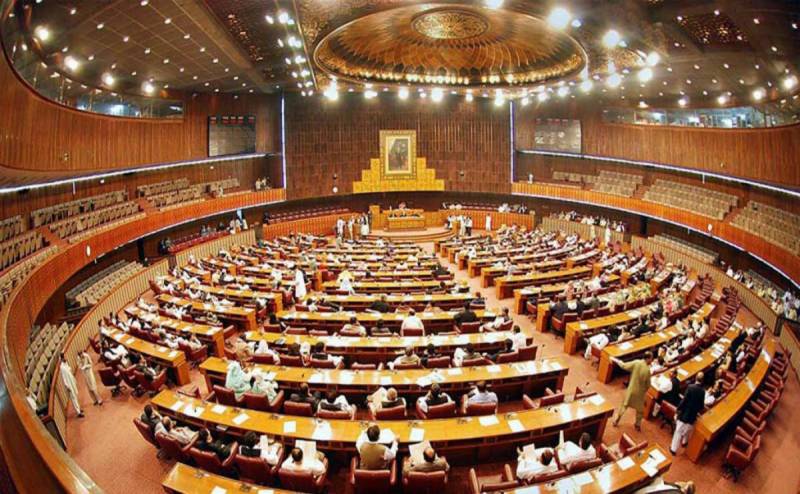ISLAMABAD – The budget for the upcoming fiscal year 2023-24 was approved by the National Assembly through a majority vote, following the government’s fulfillment of demanding conditions set by the International Monetary Fund (IMF).
To overcome the impasse in securing an ongoing financial aid package from the IMF, the government implemented several modifications to the budget for the fiscal year 2024. Finance Minister Ishaq Dar confirmed these changes during a session in the National Assembly.
For the forthcoming fiscal year, the government aims to generate an additional Rs215 billion through new taxes while reducing expenditures by Rs85 billion. Additionally, various measures have been introduced to reduce the fiscal deficit.
During the session, the finance minister justified the government’s decision to amend pension regulations, stating that it had become an immense burden on the financially strained nation. He clarified that the restriction now allows government employees from grades 17 to 22 to receive only one pension, exempting those below grade 17.
Dar, who has served as finance minister on multiple occasions, added that the issue of former government employees receiving multiple pensions had been a longstanding matter that needed resolution.
Maulana Abdul Akbar Chitrali from the Jamaat-e-Islami proposed that the Finance Bill 2023-24 be referred to the Council of Islamic Ideology for approval. However, the majority in the house rejected this demand.
The decision to amend the budget came after Prime Minister Shehbaz Sharif met with IMF Managing Director Kristalina Georgieva during the Global Financing Summit in Paris. The country has around five days left before the expiry of the Extended Fund Facility (EFF) agreement with the IMF, which was agreed upon in 2019 and is set to expire on June 30. Pakistan has been striving to secure $1.1 billion in funding, stalled since November, under the EFF’s ninth review.
Earlier, while providing details to the assembly, Dar mentioned that Pakistan had agreed to impose Rs215 billion in taxes after three days of negotiations with IMF officials to complete the pending 9th review under the EFF. He emphasized that the agreed taxes for the fiscal year 2023-24 amount to only Rs215 billion, ensuring that they will not burden the poorer and middle-income segments of society. Dar also assured that the reduction of Rs85 billion in running expenditures would not affect the proposed development budget, salary increments, or pensions for federal government employees.
Dar stated that the government had engaged with the IMF in a sincere manner and pledged that all details would be made public by posting the agreement on the Ministry of Finance’s official website once matters with the international lender were settled.
Consequently, the proposed tax collection target of the Federal Board of Revenue (FBR) has been increased from Rs9.2 trillion to Rs9.415 trillion. The provincial share has also risen from Rs5.276 trillion to Rs5.390 trillion, while the federal government’s total expenditure estimate has increased from Rs14.460 trillion to Rs14.480 trillion. The pension estimate has been raised from Rs761 billion to Rs801 billion. Additionally, the subsidy estimate stands at Rs1.064 trillion, and grants at Rs1.405 trillion.














